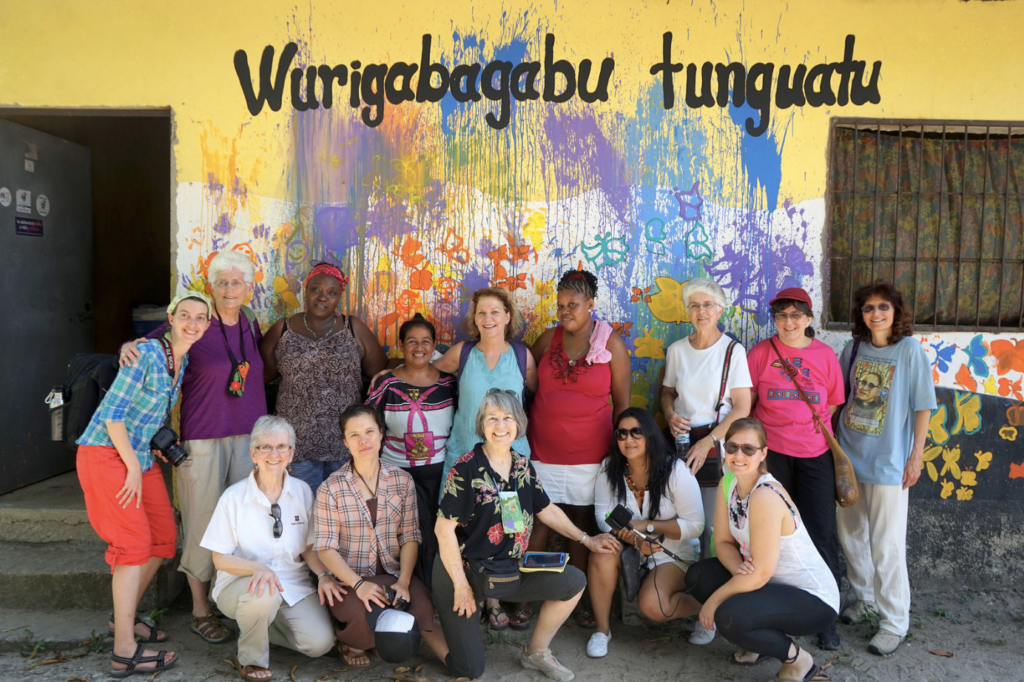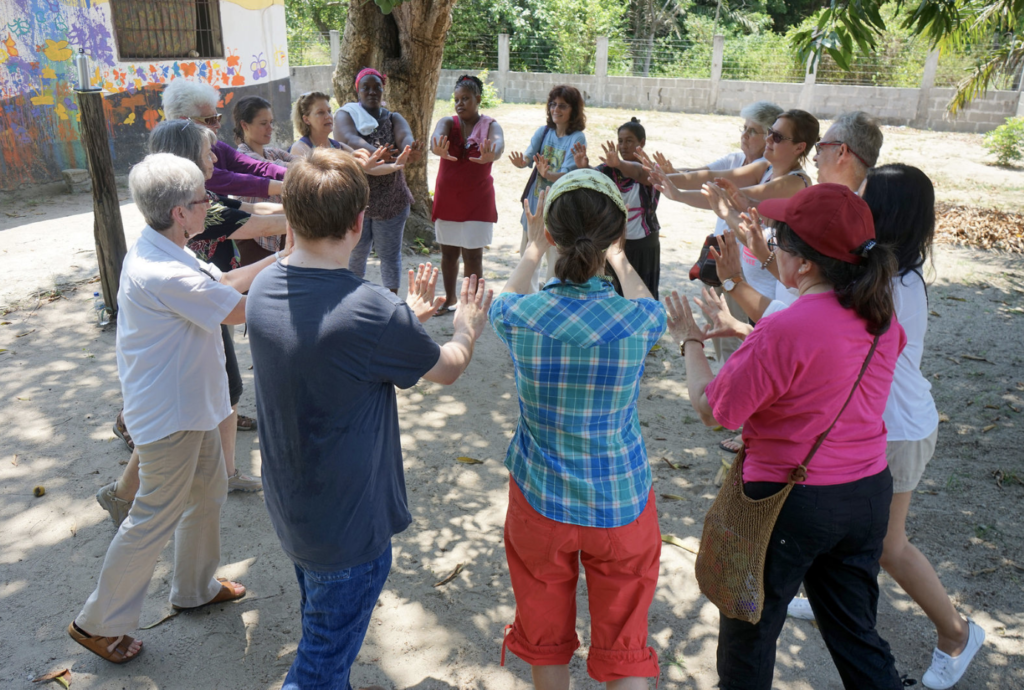“Do I call them ‘Sister?’” My co-worker and I were settling our things into our assigned room at the convent. The air was hot and muggy, something I felt acutely as I was still in that heightened state of awareness that you feel your first moments in a new land. I had technically been to Honduras before, but everything felt new. “I dunno,” my colleague answered (she had been raised Catholic as well). “It’s kinda weird one way or the other.”
Two UUSC colleagues and I were in Honduras to be part of an accompaniment trip to support our partners/human rights activists returning to Honduras (written about much more clearly here). I had never been a part of an accompaniment trip before and felt out of my element for so many reasons: I do not consider myself a human rights expert; I am not an expert on Central American history nor international relations; I had never been a part of interfaith circles before; I knew this trip was going to be emotionally intense in ways that I was not prepared for. My background is in experiential education and I am perhaps too comfortable in the role of the facilitator–I get to (too often) lead and direct group emotional processes to a carefully thought out pedagogical question and thus open up a space for cognitive “awakening.” Sweet. But when faced with the personal stories of state-sanctioned torture and terror, what in the hell do you do with that? When faced with the deepest stories of both human hate and resilience, where can you emotively go?

Gina and the interfaith accompaniment delegation she traveled with in Honduras.
Our group was comprised of various human rights activists of various faiths. In particular, there were four nuns that I found myself keenly interested in. Would they be like the nuns of my catholic school childhood? Would they be like the nuns from the pueblo that I lived in during Peace Corps who, try as I might, I couldn’t make friends with (I remember angrily muttering to myself, ‘Doesn’t your religion compel you to be friendly?!’)”
I was standoffish during the delegation’s first morning worship. I am pretty open minded, but I didn’t know if this would be a journey back to the robot-like “praying” of 2nd grade. To my delight, instead of an authoritative dictatorship over my spiritual process (whoa, catholic school, leave your mark much?), Sister Mary Ellen lead us in bodywork. We did Tai-Chi. “Holy shit,” I thought, “this lady is really good at creating a mind-body connection.” Moreover, I could feel that this integrated fully with her deep understanding of her own Catholicism. And it wasn’t just her. When Sister Rosa Maria spoke about her work in Honduras, I could palpably feel both her toughness and love. (“I wouldn’t mess with her,” Jose, our delegation leader would say.) I felt the presence Sister Ann could bring sitting next to someone who was deeply grieving and afraid, I felt the strength that Sister Kathleen emoted as she lead a group of us (after hearing some of the hardest stories I had ever heard) to hold hands. She guided us to reconnect to spirit. She knit something back together. She held us together in community.
This isn’t saying that I’m returning to Catholicism. I’m not. But I know when I am in the presence of something good, I know when I am in the presence of people who have faced themselves and done their own work. Honduras was hard in a way that I don’t know how to write openly about, because I am afraid that I won’t do it justice–I don’t know where I end and it begins. I feel guilt that it was hard; I felt deep emotions during the journey, and then I got to leave. I feel embarrassed about how unequipped I was to hold it all. I feel anxiety about not knowing about how to move forward. I find myself reexamining my life choices up to now and asking myself, “With all that I know that is unjust in this world, have I done enough?”
But then I breathe and I remember. I think Sister Mary Ellen would say to let my emotions come. They are each a friend and have something to teach me. I think Sister Rosa Maria has her doubts and fears, too. I bet Sister Anne had to learn how to be present amidst pain. I’m sure Sister Kathleen doesn’t always feel strong.
After sitting and listening to a group of men tell their stories of being beaten, imprisoned, terrorized, and caged, we all stood in a circle. Sister Kathleen lead us in what I think was the most powerful prayer I have ever heard. We went around the circle and simply stated a word that gave us hope (or courage or something like that, to be honest I don’t remember the details). And then she lead the group in a song that most people knew the words to and people sang together. After crying, and still afraid, they sang.
We then had our own moment as a delegation to stand in a circle and be. I remember thinking, “I don’t know how to hold this, I don’t know how to hold this.” We gave time so that those of us who wanted to speak could speak. The responses varied from rage to sorrow to silence to everything in between. And as I stood there, I finally realized: I don’t need to know how to hold this. I cannot hold this as one person. We have to hold it together.

During one of our worships we had a chance for silent reflection. I think there was a prompt–I forget what that prompt was. But one of the sisters, at the end of the time, pointer to herself and said, “My body.” She then pointed to the group of us sitting in a circle and said, “My body.” And then she pointed to the greater environment and said, “My body.” I am so grateful to have finally met the nuns that I always wanted to meet. They were not able to give answers or make the horror of the world go away. But by the simple example of their presence and their persistence, they gave me a bit more strength to have faith in what could be, they helped me feel what true community might feel like, and they helped me to stay present in something I didn’t want to stay present in.
My body.
My sisters.


